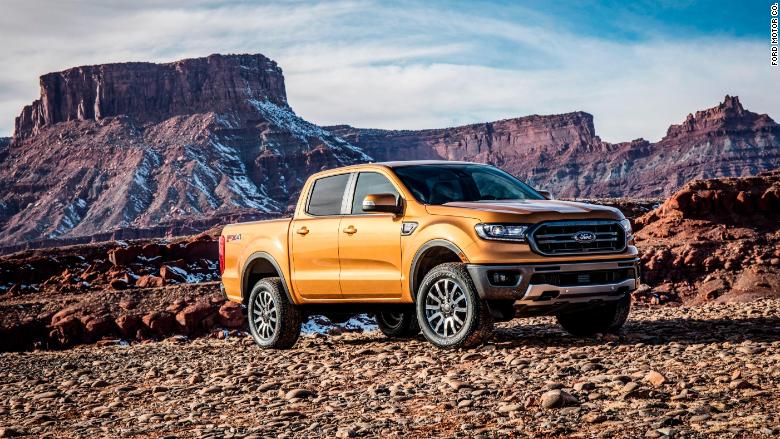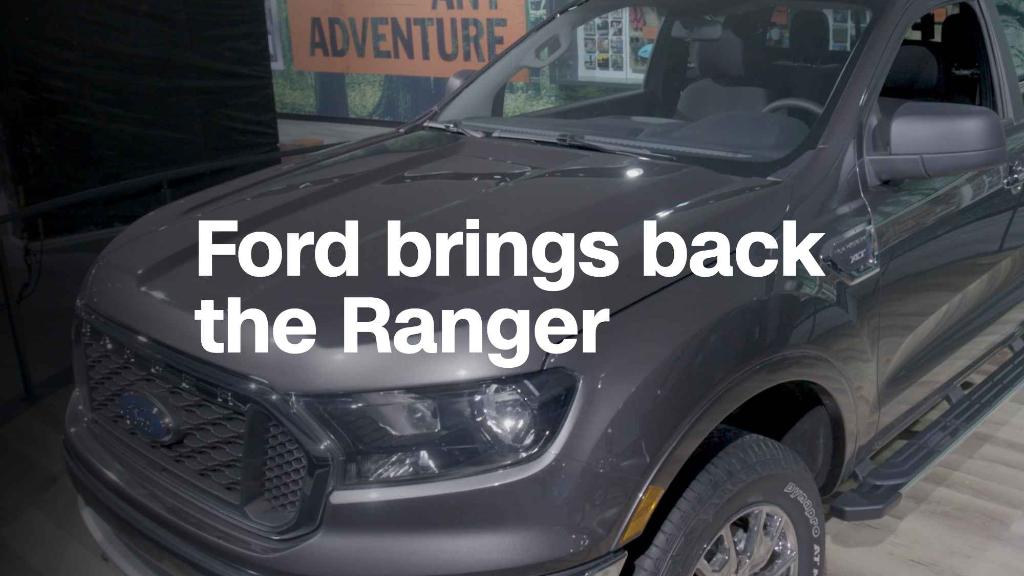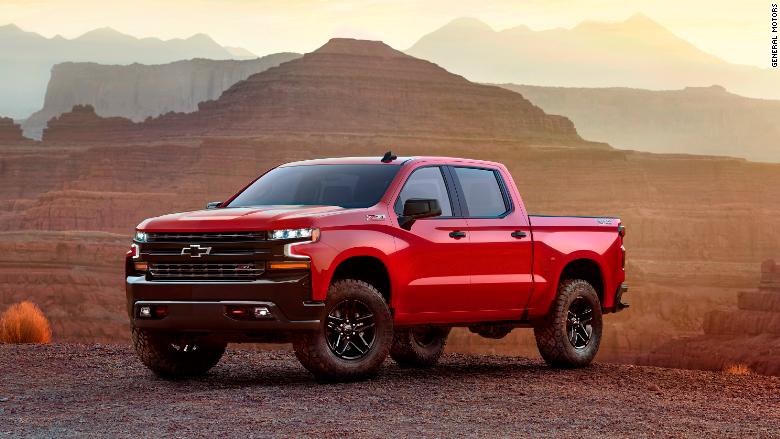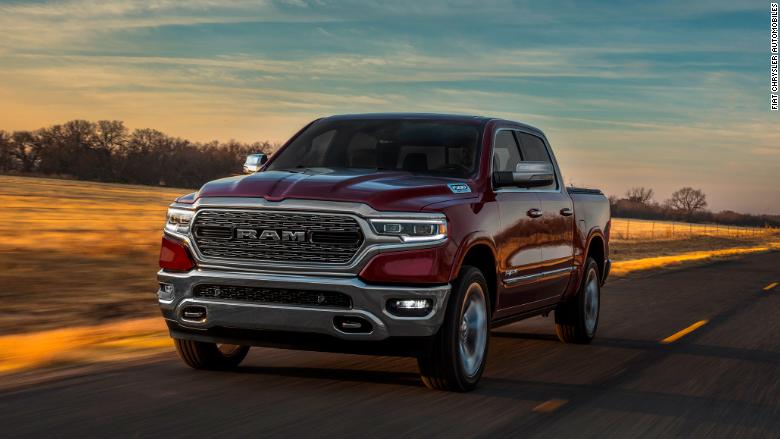
Ford, General Motors and Fiat Chrysler all unveiled new pickup trucks in Detroit. It was a resounding reminder that, while everyone talks about electric and self-driving cars, for now the big profits are still in pickup trucks.
The competition for truck customers is fierce. Ford (F) boasts that its F-series pickup has been the best-selling vehicle of any kind in America for the last 41 years. Meanwhile, GM (GM) brags that Chevrolet, with its Silverado, Silverado HD and the smaller Colorado truck, sells more pickups, in total, than anyone.
But Ford's fighting back. At this year's Detroit Auto Show, it re-introduced the Ranger pickup, a smaller, sportier alternative to the full-sized F-150. It will compete head-on with the Colorado. Meanwhile, Fiat Chrysler hopes to break through with the redesigned Ram 1500, which was also introduced in Detroit.
Pickup customers are famously loyal to their brands But there are a few ways to lure anyone who is wavering.
One is fuel economy. More than one third of pickup owners say they would consider switching brands for better mileage, according to a survey by the Web site CarGurus.com. That's more than would switch over towing capacity or bed size.

The Ram truck's base engine is actually a mild-hybrid system with a V6 engine, something that Ram customers have shown a great interest in, according to Fiat Chrysler (FCAU). GM's all-new Silverado offers technology that can shut down anywhere from one to seven of the engine's eight cylinders to conserve fuel when full power isn't needed. The Silverado will also offer a diesel engine, an option that Ford recently said it will also begin offering in its F-150. Diesel engines offer lots of towing power while also burning less fuel than gasoline engines.

Cutting weight is another way to save fuel. All three automakers brag about how much weight their trucks have lost and they take shots at each others' weight loss techniques. Ford now makes the F-150's body out of pure aluminum, a choice that helped trim 700 pounds from the previous steel design.
But Mark Reuss, GM's head of product development, took a shot at Ford's approach during the Silverado's unveiling last week. He compared the bed of a pickup to the head of a hammer, given that it's the part that actually does the work and takes all the abuse.
"You're not getting much work done with an aluminum hammer," he said. The crowd, packed with long-time Chevy truck owners, cheered and hooted.

For its part, GM (GM) makes its truck from a mixture of various types of steel. Only the outer skins of the doors and tailgate are made from aluminum.
Unique features are another way automakers can steal customers away from rivals. Ram, for instance, has long offered the "RamBox" on its trucks. These are watertight, drainable and lockable boxes built into the walls of the truck bed. On the new Ram truck, the RamBoxes now have built in electrical outlets. The Chevrolet Silverado has a power tailgate that can be lowered and raised remotely. Ford is widely considered the leader in truck tech. Its trucks have things like trailer back-up assist, which helps automatically steer the truck to make an attached trailer go where it's supposed to.

All three automakers are also offering more luxurious -- and more expensive -- versions of their trucks. Fiat Chrysler showed off a Ram truck in Detroit that has a layered, stitched leather interior and a premium stereo. Ford offers a Limited version of the F-150 with deeply colored leathers, wood trim and prices starting at over $60,000. You can also get the Limited option package on one of Ford's massive Super Duty trucks for a price that can easily reach six figures.
These bells and whistles all boil down to more choices for customers, and fatter profits for automakers.

